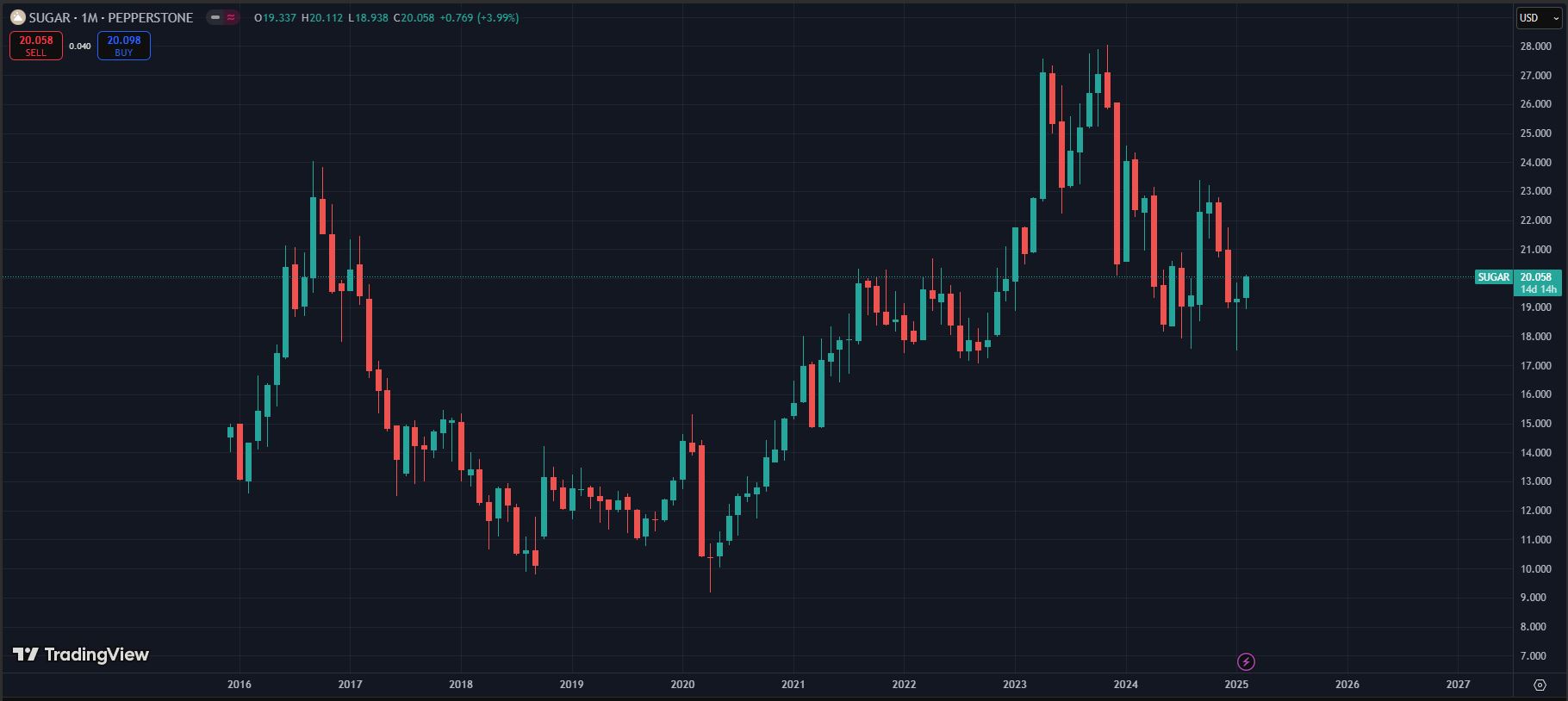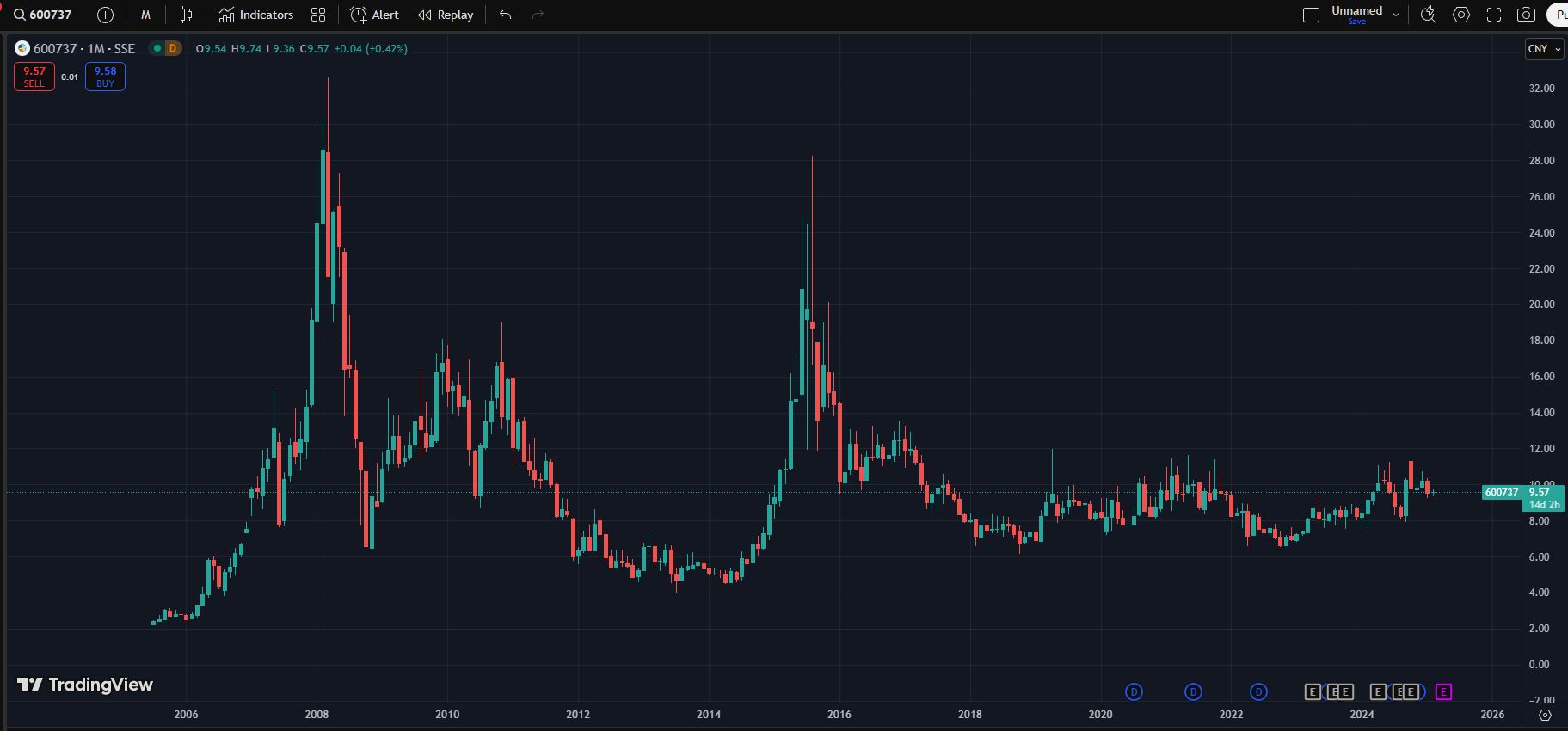COFCO Sugar Holding Co Ltd is a Chinese stock listed on the Shanghai Stock Exchange, with a stock code of 600737. At first glance, this company is nothing noteworthy. It deals primarily in sugar, something common and somewhat necessary in our daily lives yet does not have the hype of AI or technology nor the popularity of banks and utility companies. But if we dig deeper, we may actually find it is a hidden treasure.
As the whole homework is somewhat long and I want to keep this article to a reasonable length, I will just jump in straight to the key points rather than bore you with the unnecessary stories. Readers are encouraged to verify the facts I stated here.
Company Background
Incorporated in 1993 and listed in 1996, it is part of the COFCO Group and its largest shareholder (50.73%) is the State-owned Assets Supervision and Administration Commission of the State Council (国务院国有资产监督管理委员会). Basically, the Chinese government directly controls it. The COFCO Group has a core and specialised focus on grain, oil, sugar and cotton among its many businesses, and COFCO Sugar as its name suggests, deals with the sugar aspect. Yet despite its name, COFCO Sugar deals also in the tomato processing business, which we will come to it later.
Conclusion 1: This is a listed company with the country’s backing and dealing with core national interests – food sufficiency. Although companies like Netflix is popular and earning a lot of money, people do not die if they do not have TV to watch. Though not the only consideration, but for me, an unshakable demand for the company’s business with a strong backing is definitely a big plus point.
The Sugar Supply Chain
COFCO Sugar owns the whole sugar supply chain – research of sugar cane seeds, growing and harvesting of sugar cane, transport, processing, distribution and sales. COFCO Sugar has everything under it – meaning that the risk of a supply chain disruption is kept as low as possible. Supply chain disruption is a term we hear frequently especially during the COVID period, and it is especially frustrating when one part of the supply chain fails and affects everything downstream, of which the impact will cycle back upstream.
Overseas, COFCO Sugar fully owns Tully Sugar, one of the largest sugar mills in Australia. Similar to its operations in China, it grows its own sugar cane in Australia and even built a railway over 200km long exclusively used to transport the sugar canes from the farm to the processing plant, where it crushes 700 tons of sugar cane per hour.
Conclusion 2: This company has reduced operational and supply chain risks by getting everything under its control. It is independent and self-sufficient in the whole sugar production process, which is an amazing feat in itself. Not only that, if the China’s business faces disruption for some reason, there is always the Australian side and vice versa. Both its domestic and foreign arm adds to each other during good times and serves as a backup for the other in bad times.
The Tomato Business
Surprisingly, COFCO Sugar also deals in the tomato business. In 2023 (2024’s report not out yet), the sugar business brought in a revenue of 30,251,218,584.11 RMB (30.25 billion) while the tomato business brought in a revenue of 2,642,174,273.83 RMB (2.64 billion). All things considered, including other small miscellaneous businesses, the tomato business brought in 7.98% of the company’s revenue. But because the cost of sugar business was 26,840,927,500.73 RMB and cost of tomato business is 1,443,476,862.60 RMB, we have a scenario where the sugar business has a profit margin of 12.7% while the tomato business has a profit margin of 83.0%, and the tomato business contributes to 25.0% of the company’s profits. This is significant.
Read 2023’s financial report here and here. It is in Chinese though. Specifically look at page 174 of the second link if you want to crunch the numbers.
COFCO Sugar’s tomato processing business is the largest in Asia and second in the world, behind The Morning Star Company in the US. Similar to its sugar production, they also own the whole supply chain in their tomato processing business.
Although the tomato business cannot completely cover for the sugar business, nonetheless it is also considered a significant contingency plan to ensure the company manages to stay afloat in the event things go awfully wrong for the sugar sector. We will come to that later.
Conclusion 3: Just like how their domestic and overseas sugar production cover each other, the highly profitable tomato business also significantly covers for the sugar business.
The Boring Numbers
These are the boring numbers at the time of writing:
- P/B: 1.86. Ideally 1 or below, but compared to many other companies, it is still on the reasonable side.
- P/E: 11.42. Far below the recognised average of 20-25, which is quite good.
- Dividends: 8.66%. Been rising over the past few years, and at the current rate it is considered fantastic even though there is a slight potential to drop for a bit.
Of course if you want to dig far deeper there is always things like debt, depreciation etc to consider. But I will not go too deep into that.
The Risks
Naturally, the biggest risk to this company is the price of sugar. Price of sugar is hard to predict, and can be impacted by a variety of factors such as weather, price of oil, government regulations (such as tariffs), global level stockpiles etc. The price of sugar has also fluctuated much over recent times.

The price of sugar will directly impact profits and of course, the dividends being paid out. This is important because I am buying this stock for primarily its dividends and secondarily capital appreciation. If we compare to the stock price of COFCO Sugar, we will see that the correlation being the price of sugar and their stock seem to be minimal, which also in a way is a good thing as prices are sort of stable over time, with a few spikes here and there but which went back to normalcy shortly after.

Although prices of sugar will impact dividends, I will not bother too much about doing homework and predicting the price of sugar. If I am that good, I would have traded sugar CFDs instead. Generally this stock is stable, and it provides you with the peace that things will be more or less be within reasonable expectations.
Conclusion 4: Price of sugar will impact dividends, but will not impact price of stock too much.
Point of Entry
I am unable to advise on a price where it would be good to enter the market. Personally, I think anything below 10 RMB is good. This is just my personal opinion and I would probably allocate about 10% of my portfolio to it.
Note: The money in your investment portfolio is the amount of disposable funds you can set aside for years, not the total of all your savings and liquidity.
Conclusion
The business of this company is not revolutionary like AI nor paving the way for the future like green energy, it simply tries to serve the national interests of food self-sufficiency. Hence expecting this stock to grow exponentially over time like Tesla or Nvidia will be unreasonable. Rather, its wide reach and deep roots in the industry will provide a solid foundation for dividends, where you can sit back and relax knowing that passive income will come to you annually.
Note: China charges a 20% tax on dividends if the stock you hold is less than 1 year. They want to encourage long term investors rather than short term traders.
Disclaimer: This post does not advise you to buy the stock. It simply introduces a stock which I think is good. I hold no responsibility if you decide to buy and lose money as a result.
Showing 1 - 3 out of 3
Page 1 out of 1
| - | Shop Products | Price | |
|---|---|---|---|
|
|
$99,999.00
|
||
|
|
$1.00
|
||
|
|
Price range: $69.00 through $99.00
|


